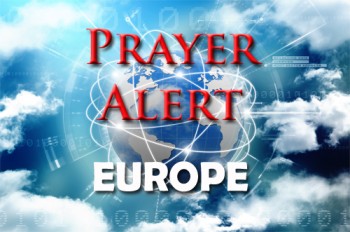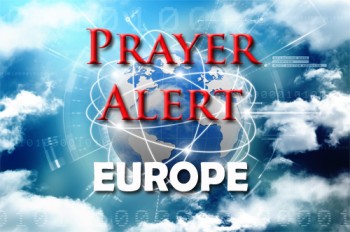Displaying items by tag: Greece
Greece: Pope condemns treatment of migrants
Speaking on the Greek island of Lesbos, Pope Francis said the migrants there were being used for political propaganda. He urged people to focus on the causes of migration, such as ‘forgotten wars’, instead of punishing those suffering from their effects. He criticised building walls to keep people out. Saying that there are people persisting in treating the problem as something that doesn’t concern them, history teaches us ‘narrow self-interest and nationalism lead to disastrous consequences.’ The pandemic showed that major challenges must be confronted together and there were some signs of this in climate change, but little sign of such an approach to migration. He spoke in front of refugees but aimed all comments at European political leaders. His words betrayed frustration at ‘the failure of politicians to adequately address the migrant issue’.
Greece: espionage trial of aid workers
Syrian refugee and aid worker Yusra Mardini went on trial on 18 November with over two dozen other aid workers from various countries, for helping migrants reach Greece between 2016 and 2018. The defendants face charges including forgery, espionage, and the unlawful use of radio frequencies. Human rights groups have condemned the trial as being politically motivated; Amnesty International called the charges ‘farcical’ and said they should never have come to trial. If found guilty, the aid workers could face five-year prison sentences. Some remain under investigation for a number of other felonies, including human smuggling, which could lead to further sentences of up to 25 years. Irishman Sean Binder said, ‘I am happy to defend myself; I know I did nothing wrong, and we can prove that. I am charged with crimes that I am supposed to have committed a year before I was ever on Lesbos.’ STOP PRESS: the trial has been suspended, but will now be heard by an appeal court.
Greece: migrants moved to EU-funded 'controlled' camps
Officials have started moving asylum-seekers to a new migrant camp on the island of Samos, Zervou, despite activists complaining that access controls are too harsh. A double barbed-wire fence surrounds the camp with surveillance cameras, X-ray scanners and magnetic doors. During the 2015/16 migrant crisis the previous camp on Samos sheltered 7,000 asylum-seekers despite its capacity being just 680. Campaigners had long denounced conditions there as deplorable. On 20 September at Zervou’s entrance police lined up the first residents, checking for weapons or dangerous objects. Asylum personnel handed out bedsheets and showed the migrants how to use the gate's magnetic entry cards. The new Samos facility is the first of several such camps on five Greek islands created with EU funds. All the ‘closed controlled’ camps can only be entered via fingerprint scans and electronic badges. Gates will remain closed at night and disciplinary measures await those who return after 8 pm.
Greece: 100+ fires, evacuations, monks refuse to leave
‘We’re waging a battle of the titans! - and the hardest is still to come,’ said the Greek deputy minister for civil protection. Wildfires in Athens suburbs mean that residents must shut windows against thick smoke containing harmful particles. Over 150 houses were destroyed by a fire that surrounded a monastery and twelve villages on the island of Evia, one of over 100 blazes in the country. The mayor of Olympia, birthplace of the Olympic Games, pleaded for help as flames threatened the site. Three monks from St David Monastery refused to leave. ‘We’re suffocating due to the smoke’, said one monk, describing flames 100 to 130 feet high surrounding them. Police will force them to evacuate if their lives are in danger. Villagers gathered on a beach to be evacuated on boats. Firefighters, helicopters and water-bombing planes were fighting the blazes. Blazes have also broken out in Turkey, Italy, Israel, Spain, North Macedonia and Albania: see
Greece: wildfire out of control
Several areas north of Athens were evacuated on 27 July as an out-of-control wildfire swept through a hillside forest threatening homes near Athens. Winds have dropped now but on 29 July the battle against wildfires continued throughout the night. 180 firefighters, eight ground units, 48 tenders, 2 helicopters and 2 aircraft are fighting the fire. Local municipalities have also deployed water tankers and construction machinery. On the first day of the blaze, six houses were burnt down and residents in eleven villages were told to evacuate their homes for precautionary reasons. At the time of writing four out of 13 regions are at ‘very high risk’ of fire according to the wildfire hazard map.
Greece, Turkey: Mediterranean crisis talks
Greece and Turkey were on the verge of military confrontation last August, after Turkey launched its seismic survey ship and a small naval fleet to explore for undersea oil and gas in Eastern Mediterranean waters which Greece claims as part of its exclusion zone, but Turkey disputes this. Although these zones do not entail the absolute sovereignty that territorial waters do, they give countries rights of exploration and exploitation of mineral and living resources. Last week, Greece doubled the extent of its western territorial waters in the Ionian Sea to twelve nautical miles - the maximum allowed by the UN. The possibility of conflict has alarmed both NATO, of which Greece and Turkey are members, and the EU. However, on 25 January Greece and Turkey announced they will begin exploratory talks in Istanbul, with the aim of setting maritime boundaries.
Spain / Greece: extreme weather
Deep snow left by Storm Filomena turned to ice, disrupting transport and lowering temperatures to -25C (-13F). The elderly are warned to stay at home. At least seven people have died due to the weather. ‘We are going to have this cold for a few more days, but we all pull together’, Yoli Asensio said, ‘Day-to-day life is difficult, access to homes and roads are blocked.’ There were 1,200 fracture cases in one day, caused by accidents on the ice - an average of fifty an hour. 1,300 snow-clearing vehicles managed to push snow off 12,100km of roads, to keep them ice-free. In contrast, Greece is basking in unusually warm weather, with Athens recording temperatures of 23C (73.4F) - the average January temperature is 10C.
Greece: another refugee camp fire at Samos
According to the UN Refugee Agency, there are approximately 19,600 migrants and refugees on the Aegean islands as of 8 November. A series of large blazes destroyed Greece's largest migrant camp, Moria on the island of Lesbos, back in September. The Greek authorities said that the fires were deliberately started by the camp's residents. Officials on Samos reported a similar fire at a migrant camp on 2 November, the second blaze to hit such a facility over the last ten days. The cause of this fire has not yet been determined, and the number of migrant tents destroyed by the blaze is not yet known.
Aegean Sea earthquake
An earthquake in the Aegean Sea on 30 October has so far killed 107 people in Turkey and Samos. It is not yet clear on how many people are still under the rubble of 20 Turkish buildings; 144 survivors are still in hospital and over 1,000 people were injured in Turkey. A ‘mini tsunami’ flooded streets in Turkey and Samos. Four days after being buried alive a young girl called Ayda was pulled from the rubble. As she was being taken to an ambulance, wrapped in a thermal blanket, everyone clapped and chanted ‘God is great’. Her rescue came a day after a three-year-old girl and a 14-year-old girl were also pulled out alive from collapsed buildings. Pray for those still waiting for news of lost relatives - and for any more still alive to be found.
Greece: Fire destroys Lesbos refugee camp
A fire has destroyed Greece's Moria migrant camp on Lesbos. 13,000 are sleeping rough in fields, car parks and roads. Authorities have sent three ships to temporarily shelter 2,000 and are working to provide emergency accommodation near the destroyed camp. Germany called the blaze a ‘humanitarian disaster.’ Some locals attacked and prevented fleeing migrants from passing through their village. The UNHCR said it was aware of ‘tensions’ between nearby townsfolk and the migrants. Pray for those working to arrange shelter for 13,000 refugees. 70% are Afghani with 30% from 70 different countries. Authorities placed Moria under quarantine last week after a Somali migrant tested positive for the coronavirus. There are now 35 confirmed cases.









